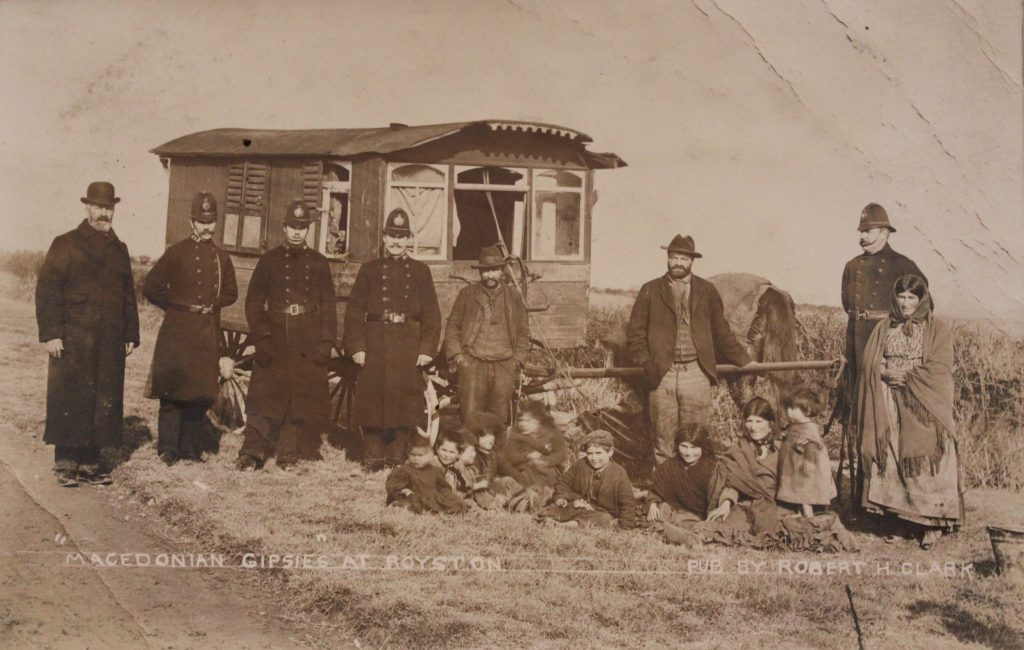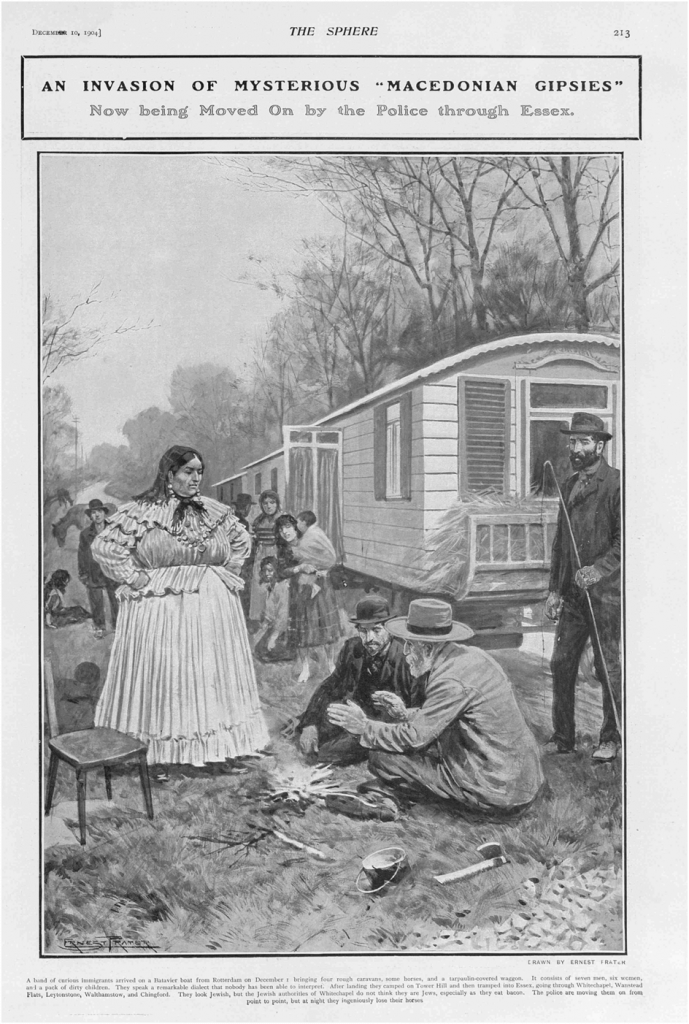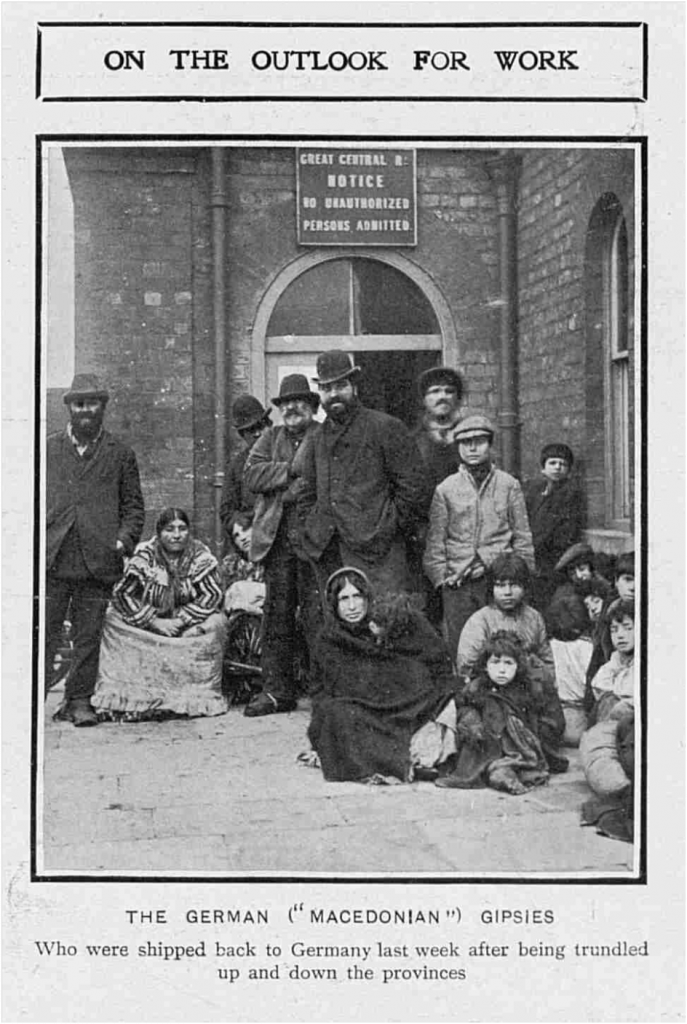On Thursday 1 December 1904, five refugee families made landfall next to the Tower of London. Displaced, they were escaping from harsh new laws that the German government was enacting against travellers (a process that soon saw all gipsies fingerprinted and eventually led to Hitler’s death camps).
Some in Britain were welcoming, but most were not. The People newspaper went as far as labelling them ‘a peculiarly unpleasant kind of human vermin.’ Although the border was open, at Westminster the politicians were arguing over a new Aliens Act which would for the first time limit immigration.
No-one knew who these uninvited visitors were, and, since there was fierce fighting in the Balkans, the sensationalist press were quick to label them ‘Macedonians’.
When I was young I remember we were let out of school very early because the Macedonians were on their way. I ran all the way home because I was so frightened.“
– Minnie Roberts
At least one family spent time in the workhouse. Local authorities wanted nothing to do with them and around London and East Anglia great crowds came out to gawp at the gipsies as they were forced to move on by the police from one county to another.

When they crossed the county line at Royston the entrepreneurial Robert H. Clark was there with his camera and the postcards he produced with the Warren Brothers ‘had a very large sale’ (Royston Crow).

At Epping the gipsies were stoned and one child suffered a bad head wound. At St Albans a crowd of around 800 gathered and it was only the presence of large numbers of police ‘that saved them from being roughly treated’ (Official Police Report).

In the snow of that spring, one of the women gave birth. The apparently healthy baby girl quickly developed such bad catarrh that she could not feed. Despite Anna Holtzmann’s desperate efforts, her daughter slowly starved to death. On 13 March 1905, eight-day-old Maria was buried at Great Brickhill.
The Luton Times and Advertiser commenting, ‘Such folk would not be allowed to land in the United States, but until the long-delayed Aliens Bill is passed, other places will have the experience of Great Brickhill.’

The ‘gipsies’ were eventually shipped back to Germany, their passage paid for by charities.
Britain was turning inward. The Aliens Act – the first legal curb on the freedom of displaced people seeking refuge – became law on 11 August that year. Its effect is still felt today.

The composer Jenni Pinnock and I interpreted Maria’s story in The Blessing of the road-born child for the Cracked Voices song cycle.
